Mondi and Reckitt have launched a paper-based packaging for Finish dishwasher tabs. With the new packaging 75 per cent less plastic have to be used which has the potential to eliminate more than 2.000 tones of plastic each year. The remaining plastic is used to strengthen the paper structure.
Mondi has helped Reckitt on its sustainability journey by designing new paper-based packaging for the company’s Finish dishwasher tablets. Packaging for dishwasher tablets must be sealable, durable and water resistant, so using paper has traditionally been challenging. However, by working closely together along Mondi’s EcoSolutions approach, the companies were able to create a solution that is sustainable by design: the new Finish packaging has successfully replaced 75 per cent of the plastic with responsibly sourced paper. The remaining plastic is used to strengthen the paper structure and provide barrier protection to ensure the quality and safety of the Finish product as well as a re-closable seal.
The new paper-based packaging for Finish will initially launch exclusively with Carrefour in France, where the packaging is recyclable in the existing paper recycling streams. Any adaptations required following the initial market launch will be incorporated before its roll out in other countries over the next few years. Once the launch is complete, Reckitt will be eliminating more than 2,000 tonnes of plastic every year – which is the equivalent of 50 million 1-litre bottles.
„Removing plastic from our products is a priority across all Reckitt’s brands. We are always looking at new and innovative ways to improve sustainability in our packaging and we are committed to pioneering further packaging innovation. One of Reckitt’s sustainability ambitions is to reduce virgin plastic in our packaging by half by 2030. As well as removing plastic, the new packaging is expected to generate 15 per cent less CO2 emissions across the product’s lifecycle compared to the previous plastic packaging.”
Angela Naef, Chief Research & Development Officer at Reckitt
„With Reckitt, we were able to develop a paper-based packaging solution that reduces plastic usage while still providing the necessary product protection. This project is a great example of Mondi’s approach of using paper where possible, plastic when useful. The packaging has been designed with sustainability in mind to minimise the impact on the environment. We look forward to working with Reckitt to continue to test and develop solutions that help them achieve their sustainability goals.”
Olivier Seux, Head of Global Key Accounts at Mondi
Source: Mondi
More packaging news
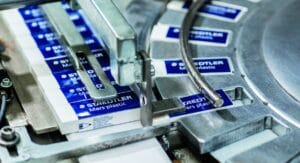
A contract with a handshake is valid
Managing director Tina Gerfer of Wilhelm Rasch Spezielmaschinenfabrik has modernized the company and successfully guided it through difficult times.
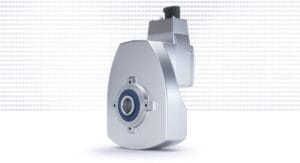
Asynchronous servo solutions for the packaging industry
From primary packaging to final packaging, electric drives play an important role. With a broad portfolio, Nord Drivesystems supports customers.
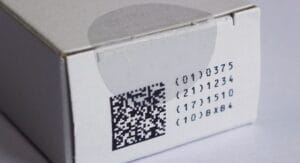
Label Durability
Labels offer many functions which can get lost due to label removal. PTS assesses labels and cardboard for durability and tamper evidence.
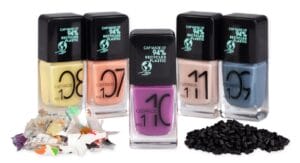
More design for recycling for cosmetics packaging
Packaging for decorative cosmetics is very special. The Forum Rezyklat calls for the recyclability of packaging to be taken into account when designing it.

Innovation Barometer 2024
According to a survey conducted by Aktionsforum Glasverpackung 2024 is set to be a highly innovative year for glass packaging.
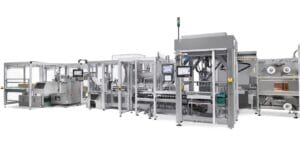
Flexible packaging system for natural cosmetics
Sustainability is part of Weleda’s identity. IWK is also contributing to this with its new flexible packaging line for many natural cosmetic products.




